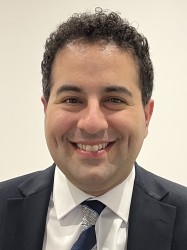BibTex format
@article{Cammarota:2019:10.1136/gutjnl-2019-319548,
author = {Cammarota, G and Ianiro, G and Kelly, CR and Mullish, BH and Allegretti, JR and Kassam, Z and Putignani, L and Fischer, M and Keller, JJ and Costello, SP and Sokol, H and Kump, P and Satokari, R and Kahn, SA and Kao, D and Arkkila, P and Kuijper, EJ and Vehreschild, MJGT and Pintus, C and Lopetuso, L and Masucci, L and Scaldaferri, F and Terveer, EM and Nieuwdorp, M and López-Sanromán, A and Kupcinskas, J and Hart, A and Tilg, H and Gasbarrini, A},
doi = {10.1136/gutjnl-2019-319548},
journal = {Gut},
pages = {2111--2121},
title = {International consensus conference on stool banking for faecal microbiota transplantation in clinical practice},
url = {http://dx.doi.org/10.1136/gutjnl-2019-319548},
volume = {68},
year = {2019}
}

